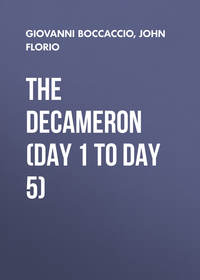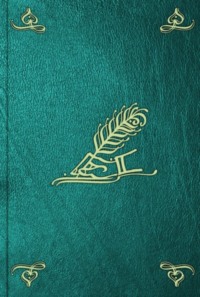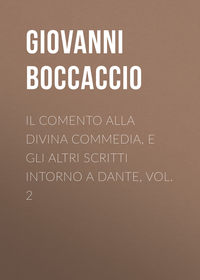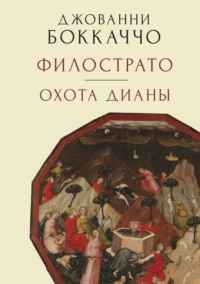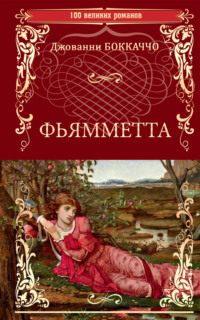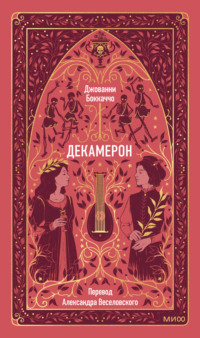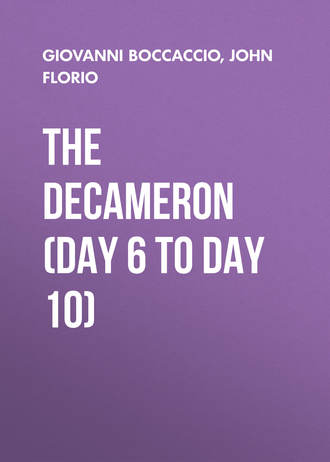 полная версия
полная версияThe Decameron (Day 6 to Day 10)
It is no disgrace to them to be Gowty; because when other men know it not, they alledge, that strict fasting, feeding on grosse meates (though never so little,) continuall studying, and such like restraints from the bodies freer exercise, maketh them subject to many infirmities. And yet, when any one of them chanceth to fall sicke, the Physitian must minister no such counsell to them, as Chastity, Abstinence from voluptuous meats, Discipline of the body, or any of those matters appertaining to a modest religious life. For, concerning the plaine, vulgar, and Plebeian people, these holy Fathers are perswaded, that they know nothing really belonging to a sanctimonious life; as long watching, praying, discipline and fasting, which (in themselves) are not able, to make men look leane, wretched, and pale. Because Saint Dominicke, Saint Fraunces, and divers other holy Saints beside, observed the selfesame religious orders and constitutions, as now their carefull successors do. Moreover, in example of those fore-named Saints, who went wel cloathed, though they had not three Garments for one, nor made of the finest Woollen excellent cloath: but rather of the very coarsest of all other, and of the common ordinary colour, to expell cold onely, but not to appear brave or gallant, deceyving thereby infinite simple credulous soules, whose purses (neverthelesse) are their best pay-masters.
But leave we this, and returne wee backe to vertuous Fryar Reynard, who falling againe to his former appetites; became an often visitant of his Gossip Agnesia, and now hee had learned such a blushlesse kinde of boldnesse; that he durst be more instant with her (concerning his privie sute) then ever formerly he had bin, yea, even to solicite the enjoying of his immodest desires. The good Gentlewoman, seeing her selfe so importunately pursued, and Fryar Reynard appearing now (perhappes) of sweeter and more delicate complexion, then at his entrance into Religion: at a set time of his secret communing with her; she answered him in as apt tearmes, as they use to do, who are not greatly squeamish, in granting matters demanded of them.
Why how now Friar Reynard? quoth shee, Doe God-fathers use to move such questions? Whereto the Friar thus replyed. Madam, when I have laide off this holy habite (which is a matter very easie for mee to do) I shall seeme in your eye, in all respects made like another man, quite from the course of any Religious life. Agnesia, biting the lip with a pretty smile, said, O my faire Starres! You will never bee so unfriendly to me. What? You being my Gossip, would you have me consent unto such a sinne? Our blessed Lady shield mee, for my ghostly Father hath often told me, that it is utterly unpardonable: but if it were, I feare too much confiding on mine owne strength. Gossip, Gossip, answered the Friar, you speake like a Foole, and feare (in this case) is wholly frivolous, especially, when the motions mooved by such an one as my selfe, who (upon repentance) can grant you pardon and indulgence presently. But I pray you let mee aske you one question, Who is the neerest Kinsman to your Son; either I, that stood at the Font for his Baptisme, or your Husband that begot him? The Lady made answere, that it was her Husband. You say very true Gossip, replyed the Friar, and yet notwithstanding, doth not your Husband (both at boord and bed) enjoy the sweet benefit of your company? Yes, said the Lady, why shold he not? Then Lady (quoth Reynard) I, who am not so neere a Kinsman to your Sonne, as your Husband is, why may ye not afford mee the like favour, as you do him? Agnesia, who was no Logitian, and therefore could not stand on any curious answer, especially being so cuningly moved; beleeved, or rather made shew of beleeving, that the Godfather said nothing but truth, and thus answered. What woman is she (Gossip) that knoweth how to answer your strange speeches? And, how it came to passe, I know not, but such an agreement passed betweene them, that, for once onely (so it might not infrindge the league of Gossip-ship, but that title to countenance their further intent) such a favour should be affoorded, so it might stand cleare from suspition.
An especiall time being appointed, when this amorous Combate should be fought in loves field, Friar Reynard came to his Gossips house, where none being present to hinder his purpose, but onely the Nursse which attended on the child, who was an indifferent faire & proper woman: his holy brother that came thither in his company (because Friars were not allowed to walke alone) was sent aside with her into the Pigeon loft, to enstruct her in a new kinde of Pater noster, lately devised in their holy Convent. In the meane while, as Friar Reynard and Agnesia were entring into hir chamber, she leading her little son by the hand, and making fast the doore for their better safety: the Friar laide by his holie habit, Cowle, Hood, Booke, and Beads, to bee (in all respects) as other men were. No sooner were they thus entred the Chamber, but her husband Credulano, being come into the house, and unseen of any, staid not till he was at the Chamber doore, where hee knockt, and called for his Wife.
She hearing his voice: Alas Gossip (quoth she) what shall I do? My Husband knocketh at the doore, and now he will perceive the occasion of our so familiar acquaintance. Reynard being stript into his Trusse and straite Strouses, began to tremble and quake exceedingly. I heare your Husbands tongue Gossip, said he, and seeing no harme as yet hath bin done, if I had but my garments on againe; wee would have one excuse or other to serve the turne, but till then you may not open the doore. As womens wits are sildome gadding abroad, when any necessitie concerneth them at home: even so Agnesia, being sodainly provided of an invention, both how to speake and carry her selfe in this extreamitie, saide to the Friar. Get on your garments quickely, and when you are cloathed, take your little God-son in your armes, and listning wel what I shall say, shape your answeres according to my words, and then refer the matter to me. Credulano had scarsely ended his knocking, but Agnesia stepping to the doore said: Husband, I come to you. So she opened the doore, and (going forth to him) with a chearefull countenance thus spake. Beleeve me Husband, you could not have come in a more happy time, for our young Son was sodainly extreamly sicke, and (as good Fortune would have it) our loving Gossip Reynard chanced to come in; and questionlesse, but by his good prayers and other religious paynes, we had utterly lost our childe, for he had no life left in him.
Credulano, being as credulous as his name imported, seemed ready to swoune with sodaine conceit: Alas good wife (quoth he) how hapned this? Sit downe sweet Husband said she, and I wil tell you al. Our child was sodainly taken with a swouning, wherein I being unskilful, did verily suppose him to be dead, not knowing what to doe, or say. By good hap, our Gossip Reynard came in, and taking the childe up in his armes, said to me. Gossip, this is nothing else but Wormes in the bellie of the childe, which ascending to the heart, must needs kill the child, without all question to the contrary. But be of good comfort Gossip, and feare not, for I can charme them in such sort, that they shall all die, and before I depart hence, you shall see your Son as healthfull as ever. And because the manner of this charm is of such nature, that it required prayer and exorcising in two places at once: Nurse went up with his Holye Brother into our Pigeon loft, to exercise their devotion there, while we did the like heere. For none but the mother of the childe must bee present at such a mystery, nor any enter to hinder the operation of the charme; which was the reason of making fast the Chamber doore. You shall see Husband anon the Childe, which is indifferently recovered in his armes, and if Nurse and his holy Brother were returned from theyr meditations; he saith, that the charme would then be fully effected: for the child beginneth to looke chearefull and merry.
So deerely did Credulano love the childe, that hee verily beleeved, what his Wife had saide, never misdoubting any other treachery: and, lifting up his eyes, with a vehement sigh, said. Wife, may not I goe in and take the child into my armes? Oh no, not yet good husband (quoth she) in any case, least you should overthrow all that is done. Stay but a little while, I will go in againe, and if all bee well, then will I call you. In went Agnesia againe, making the doore fast after her, the Fryar having heard all the passed speeches, by this time he was fitted with his habite, and taking the childe in his armes, he said to Agnesia. Gossip methought I heard your Husbands voice, is hee at your Chamber doore? Yes Gossip Reynard (quoth Credulano without, while Agnesia opened the doore, and admitted him entrance) indeede it is I. Come in Sir, I pray you, replyed the Friar, and heere receive your childe of mee, who was in great danger, of your ever seeing him any more alive. But you must take order, to make an Image of waxe, agreeing with the stature of the childe, to be placed on the Altar before the Image of S. Frances, by whose merites the childe is thus restored to health.
The childe, beholding his Father, made signes of comming to him, rejoycing merrily, as young infants use to do; and Credulano clasping him in his armes, wept with conceite of joy, kissing him infinitely, and heartily thanking his Gossip Reynard, for the recovery of his God-son. The Friars brotherly Companion, who had given sufficient enstructions to the Nurse, and a small purse full of Sisters white thred, which a Nunne (after shrift) had bestowed on him, upon the husbands admittance into the Chamber (which they easily heard) came in also to them, and seeing all in very good tearmes, they holpe to make a joyfull conclusion, the Brother saying to Friar Reynard: Brother, I have finished all those foure Jaculatory prayers, which you commanded me.
Brother, answered Reynard, you have a better breath then I, and your successe hath prooved happier then mine, for before the arrivall of my Gossip Credulano, I could accomplish but two Jaculatory prayers onely. But it appeareth, that we have both prevailed in our devout desires, because the childe is perfectly cured. Credulano calling for Wine and good cheare, feasted both the Friars very jocondly, and then conducting them forth of his house, without any further intermission, caused the childs Image of waxe to be made, and sent it to be placed on the Altar of Saint Frances, among many other the like oblations.
Tofano in the night season, did locke his wife out of his house, and shee not prevailing to get entrance againe, by all the entreaties she could possiblie use: made him beleeve that she had throwne her selfe into a Well, by casting a great stone into the same Well. Tofano hearing the fall of the stone into the Well, and being perswaded that it was his Wife indeed; came forth of his house, and ran to the Welles side. In the meane while, his wife gotte into the house, made fast the doore against her Husband, and gave him many reproachfull speechesThe Fourth Novell
Wherein is manifested, that the malice and subtilty of a Woman, surpasseth all the Art or Wit in manSo soone as the King perceyved, that the Novell reported by Madame Eliza was finished: hee turned himselfe to Madame Lauretta, and told her it was his pleasure, that she should now begin the next, whereto she yeelded in this manner. O Love: What, and how many are thy prevailing forces? How straunge are thy foresights? And how admirable thine attempts? Where is, or ever was the Philosopher or Artist, that could enstruct the wiles, escapes, preventions, and demonstrations, which sodainly thou teachest such, as are thy apt and understanding Schollers indeede? Certaine it is, that the documents and eruditions of all other whatsoever, are weak, or of no worth, in respect of thine: as hath notably appeared, by the remonstrances already past, and whereto (worthy Ladies) I wil adde another of a simple woman, who taught her husband such a lesson, as shee never learned of any, but Love himselfe.
There dwelt sometime in Arezzo (which is a faire Village of Tuscany) a rich man, named Tofano, who enjoyed in marriage a young beautifull woman, called Cheta: of whom (without any occasion given, or reason knowne to himselfe) he became exceeding jealous. Which his wife perceyving, she grew much offended thereat, and tooke it in great scorne, that she should be servile to so vile and slavish a condition. Oftentimes, she demanded of him, from whence this jealousie in him received originall, he having never seene or heard of any; he could make her no other answer, but what his owne bad humour suggested, and drove him every day (almost) to deaths doore, by feare of that which no way needed. But, whether as a just scourge for this his grosse folly, or a secret decree, ordained to him by Fortune and the Fates, I am not able to distinguish: It came so to passe, that a young Gallant made meanes to enjoy her favour, and she was so discreetly wise in judging of his worthinesse; that affection passed so farre mutually betweene them, as nothing wanted, but effects to answere words, suited with time and place convenient, for which order was taken as best they might, yet to stand free from all suspition.
Among many other evill conditions, very frequent and familiar in her husband Tofano; he tooke a great delight in drinking, which not only he held to be a commendable quality, but was alwaies so often solicited thereto: that Cheta her selfe began to like and allow it in him, feeding his humor so effectually, with quaffing and carowsing, that (at any time when she listed) she could make him bowsie beyonde all measure: and leaving him sleeping in this drunkennesse, would alwayes get her selfe to bed. By helpe heereof, she compassed the first familiarity with her friend, yea, divers times after, as occasion served: and so confidently did she builde on her husbands drunkennesse, that not onely shee adventured to bring her friend home into her owne house; but also would as often go to his, which was some-what neere at hand, and abide with him there, the most part of the night season.
While Cheta thus continued on these amorous courses, it fortuned, that her slye suspitious husband, beganne to perceive, that though shee drunke very much with him, yea, untill he was quite spent and gone: yet she remained fresh and sober still, and thereby imagined strange matters, that he being fast asleepe, his wife then tooke advantage of his drowsinesse, and might – and so forth. Beeing desirous to make experience of this his distrust, hee returned home at night (not having drunke any thing all the whole day) dissembling both by his words and behaviour, as if he were notoriously drunke indeede. Which his Wife constantly beleeving, saide to her selfe: That hee had now more neede of sleepe, then drinke; getting him immediately into his warme bed; and then going downe the staires againe, softly went out of doores unto her Friends house, as formerly she had used to do, and there shee remained untill midnight.
Tofano perceiving that his Wife came not to bed, and imagining to have heard his doore both open and shut: arose out of his bed, and calling his Wife Cheta divers times, without any answere returned: hee went downe the staires, and finding the doore but closed too, made it fast and sure on the inside, and then got him up to the window, to watch the returning home of his wife, from whence shee came, and then to make her conditions apparantly knowne. So long there he stayed, till at the last she returned indeede, and finding the doore so surely shut, shee was exceeding sorrowful, essaying how she might get it open by strength: which when Tofano had long suffered her in vaine to approve, thus hee spake to her. Cheta, Cheta, all thy labour is meerely lost, because heere is no entrance allowed for thee; therefore return to the place from whence thou camest, that all thy friends may judge of thy behaviour, and know what a night-walker thou art become.
The woman hearing this unpleasing language, began to use all humble entreaties, desiring him (for charities sake) to open the doore and admit her entrance, because she had not bin in any such place, as his jelous suspition might suggest to him: but onely to visit a weak & sickly neighbour, the nights being long, she not (as yet) capeable of sleepe, nor willing to sit alone in the house. But all her perswasions served to no purpose, he was so setled in his owne opinion, that all the Town should now see her nightly gading, which before was not so much as suspected. Cheta seeing, that faire meanes would not prevaile, shee entred into roughe speeches and threatnings, saying: If thou wilt not open the doore and let me come in, I will so shame thee, as never base man was. As how I pray thee? answered Tofano, what canst thou do to me?
The woman, whom love had inspired with sprightly counsell, ingeniously enstructing her what to do in this distresse, stearnly thus replyed. Before I will suffer any such shame as thou intended towards mee, I will drowne my selfe heere in this Well before our doore, where being found dead, and thy villanous jealousie so apparantly knowne, beside thy more then beastly drunkennesse: all the neighbours will constantly beleeve, that thou didst first strangle me in the house, and afterwardes threw me into this Well. So either thou must flie upon the supposed offence, or lose all thy goodes by banishment, or (which is much more fitting for thee) have thy head smitten off as a wilfull murtherer of thy wife; for all will judge it to be no otherwise. All which wordes, mooved not Tofano a jot from his obstinat determination: but he still persisting therein, thus she spake. I neither can nor will longer endure this base Villanie of thine: to the mercy of heaven I commit my soul, and stand there my wheele, a witnesse against so hard-hearted a murtherer.
No sooner had she thus spoke, but the night being so extreamly dark, as they could not discerne one another; Cheta went to the Well, where finding a verie great stone, which lay loose upon the brim of the Well, even as if it had beene layde there on purpose, shee cried out aloud, saying. Forgive me faire heavens, and so threw the stone downe into the Well. The night being very still & silent, the fal of the great stone made such a dreadfull noise in the Well; that he hearing it at the Windowe, thought verily she had drowned her selfe indeede. Whereupon, running downe hastily, and taking a Bucket fastened to a strong Cord: he left the doore wide open, intending speedily to helpe her. But she standing close at the doores entrance, before he could get to the Wels side; she was within the house, softly made the doore fast on the inside, and then went up to the Window, where Tofano before had stood talking to her.
While he was thus dragging with his Bucket in the Well, crying and calling Cheta, take hold good Cheta, and save thy life: she stood laughing in the Window, saying. Water should bee put into Wine before a man drinkes it, and not when he hath drunke too much already. Tofano hearing his Wife thus to flout him out of his Window, went back to the doore, and finding it made fast against him: he willed hir to grant him entrance. But she, forgetting all gentle Language, which formerly she had used to him: in meere mockery and derision (yet intermixed with some sighes and teares, which women are saide to have at command) out aloud (because the Neighbours should heare her) thus she replyed.
Beastly drunken Knave as thou art, this night thou shalt not come within these doores, I am no longer able to endure thy base behaviour, it is more then high time, that thy course of life should bee publiquely known, and at what drunken houres thou returnest home to thy house. Tofano, being a man of very impatient Nature, was as bitter unto her in words on the other side, which the Neighbours about them (both men and Women) hearing; looked forth of their Windowes, and demaunding a reason for this their disquietnesse, Cheta (seeming as if she wept) sayde.
Alas my good Neighbours, you see at what unfitting houres, this bad man comes home to his house, after hee hath lyen in a Taverne all day drunke, sleeping and snorting like a Swine. You are my honest witnesses, how long I have suffered this beastlinesse in him, yet neyther your good counsell, nor my too often loving admonitions, can worke that good which wee have expected. Wherefore, to try if shame can procure any amendment, I have shut him out of doores, until his drunken fit be over-past, and so he shall stand to coole his feet.
Tofano (but in very uncivill manner) told her being abroad that night, and how she had used him: But the Neighbours seeing her to be within the house, and beleeving her, rather then him, in regard of his too wellknowne ill qualities; very sharpely reproved him, gave him grosse speeches, pittying that any honest Woman should be so continually abused. Now my good Neighbours (quoth she) you see what manner of man he is. What would you thinke of me, if I should walk the streets thus in the night time, or be so late out of mine owne house, as this dayly Drunkard is? I was affraid least you would have given credit to his dissembling speeches, when he told you, that I was at the Welles side, and threw something into the Well: but that I know your better opinion of me, and how sildome I am to be seene out of doores, although he would induce your sharper judgement of me, and lay that shame upon me, wherein he hath sinned himselfe.
The Neighbours, both men and Women, were all very severely incensed against Tofano, condemning him for his great fault that night committed, and avouching his wife to be vertuous and honest. Within a little while, the noise passing from Neighbour to Neighbour, at the length it came to the eares of her Kindred, who forthwith resorted thither, and hearing how sharpely the Neighbours reprehended Tofano: they tooke him, soundly bastanadoed him, and hardly left any bone of him unbruised. Afterward, they went into the house, tooke all such things thence as belonged to hir, taking hir also with them to their dwelling, and threatning Tofano with further infliction of punishment, both for his drunkennesse, and causlesse jealousie.
Tofano perceyving how curstly they had handled him, and what crooked meanes might further be used against him, in regard her Kindred & Friends were very mightie: thought it much better, patiently to suffer the wrong alreadie done him, then by obstinate contending, to proceed further, and fare worse. He became a suter to her Kindred, that al might be forgotten and forgiven, in recompence whereof; he would not onely refraine from drunkennesse, but also, never more be jelous of his wife. This being faithfully promised, and Cheta reconciled to her Husband, all strife was ended, she enjoyed her friends favour, as occasion served, but yet with such discretion, as it was not noted. Thus the Coxcombe foole, was faine to purchase his peace, after a notorious wrong sustained, and further injuries to bee offered.
A jealous man, clouded with the habite of a Priest, became the Confessour to his owne Wife; who made him beleeve, that she was deepely in love with a Priest, which came every night, and lay with her. By meanes of which confession, while her jealous Husband watched the doore of his house; to surprize the Priest when he came: she that never meant to do amisse, had the company of a secret Friend, who came over the toppe of the house to visite her, while her foolish Husband kept the dooreThe fift Novell
In just scorne and mockery of such jealous Husbands, that will be so idle headed upon no occasion. And yet when they have good reason for it, do least of all suspect any such injuryMadam Lauretta having ended her Novell, and every one commended the Woman, for fitting Tofano in his kinde; and, as his jealousie and drunkennesse justly deserved: the King (to prevent all losse of time) turned to Madame Fiammetta, commaunding her to follow next: whereuppon, very graciously, shee beganne in this manner.


